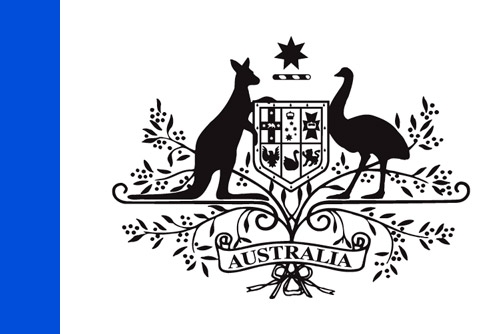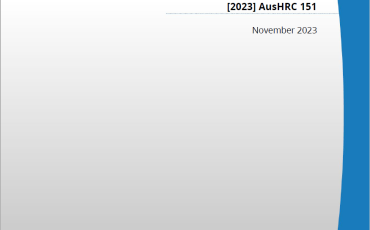Minister for Immigration and Citizenship v SZQRB [2013] FCAFC 33

Facts
SZQRB is an ethnic Hazara of Shia Muslim faith from Afghanistan. He arrived in Australia by boat in May 2010 and was detained on Christmas Island.
SZQRB was found not be a refugee by a delegate of the Minister and an Independent Merits Reviewer.
In February 2012 the Minister granted SZQRB a temporary safe haven (subclass 449) visa and a bridging visa allowing his release from detention.
In March 2012 the Department of Immigration and Citizenship completed an International Treaties Obligations Assessment (ITOA) and found that if SZQRB were removed to Afghanistan, Australia would not be in breach of its non-refoulement obligations under the Convention Against Torture (CAT) and the International Covenant on Civil and Political Rights (ICCPR).
In August 2012, SZQRB was detained and received a notice from the Department that he would be removed from Australia on 23 September 2012.
On 21 September the Minister made a decision that he would not consider, or further consider, the exercise of any of his personal non-compellable public interest powers under the Migration Act 1958 (Cth), irrespective of whether there was factual or legal error in the decisions of the Independent Merits Reviewer or the Department.
SZQRB filed an application seeking judicial review of the Minister’s decision not to exercise his non-compellable public interest powers.
Decision
In a unanimous decision the Full Court of the Federal Court held that the ITOA conducted by the Department was not carried out according to law because the wrong test was applied in considering whether SZQRB was entitled to protection under the CAT or ICCPR.
As SZQRB was found not to be a refugee as defined by the Refugees Convention, an ITOA was conducted to determine whether Australia’s non-refoulment obligations under CAT or the ICCPR were enlivened.
SZQRB claimed that if removed from Australia he was at real risk of being arbitrarily deprived of his life.
The ITOA assessed whether it ‘was more likely than not’ that SZQRB would be arbitrarily deprived of his life if returned to Afghanistan noting that this is a higher threshold than the ‘real chance’ test used in the Refugees Convention under Australian law.
The Court held that the correct test to be applied when considering whether SZQRB would suffer significant harm is the ‘real chance’ test and accordingly found that the ITOA did not apply the appropriate standard.
The Court also held that the ITOA process was flawed in that SZQRB was not accorded procedural fairness. The Department failed to alert SZQRB of information that was relevant to the decision that Australia’s non-refoulement obligations would not be breached if he were returned.
The Court made an order for a declaration that the ITOA was not made according to law and an injunction restraining the Minister from removing SZQRB from Australia until his claims for protection have been assessed according to law.
In considering the relief to be granted the following important points were noted:
- The Migration Act does not authorise the detention of an unlawful non-citizen for the purpose of an assessment of the kind which is then abandoned and the unlawful non-citizens is then removed. [269]
- Once the Minister has detained an unlawful non-citizen for the purpose of assessing that unlawful non-citizen’s claims for protection, the Minister must complete that assessment before the Minister removes that non-citizen from Australia. [270]
- The Migration Act assumes that the Minister will comply with Australia’s international obligations under the Refugees Convention, the CAT, and the ICCPR before the Minister allows a non-citizen to be returned to the country of his nationality. [270]
In a separate judgment Flick J held that a further order should be made declaring invalid the Minister’s decision not to exercise his non-compellable public interest powers as it was arbitrary or not made in accordance with the objects and purposes of the Migration Act.
His honour could not discern a legislative intent to confer upon the Minister a power that can be exercised “‘irrespective’ of – the merits of a particular case and ‘irrespective of’ Australia’s international obligations or the ‘public interest’”. (original emphasis)
His honour also held that in making a decision irrespective of the material before him the Minister denied SZQRB procedural fairness ‘in the most fundamental way’. His honour viewed that:
it is inexplicable why the Minister accepts that the processes he has put in place must accord with procedural fairness and yet rejects the necessity for him to consider (and to genuinely take into account) the recommendations and assessments made when making a decision. The requirements of procedural fairness are not satisfied by giving a person an opportunity to be heard but thereafter permitting a decision-maker to ignore all that had been said and permitting a decision-maker to proceed “irrespective of” everything that has been said. [391] (original emphasis)
The Court has asked the parties to the proceedings to provide written submissions regarding the declaration and injunction. Accordingly, the details of the final orders have not yet been published.
The decision is available online at: http://www.austlii.edu.au/au/cases/cth/FCAFC/2013/33.html
Prabha Nandagopal is a lawyer at the Australian Human Rights Commission



